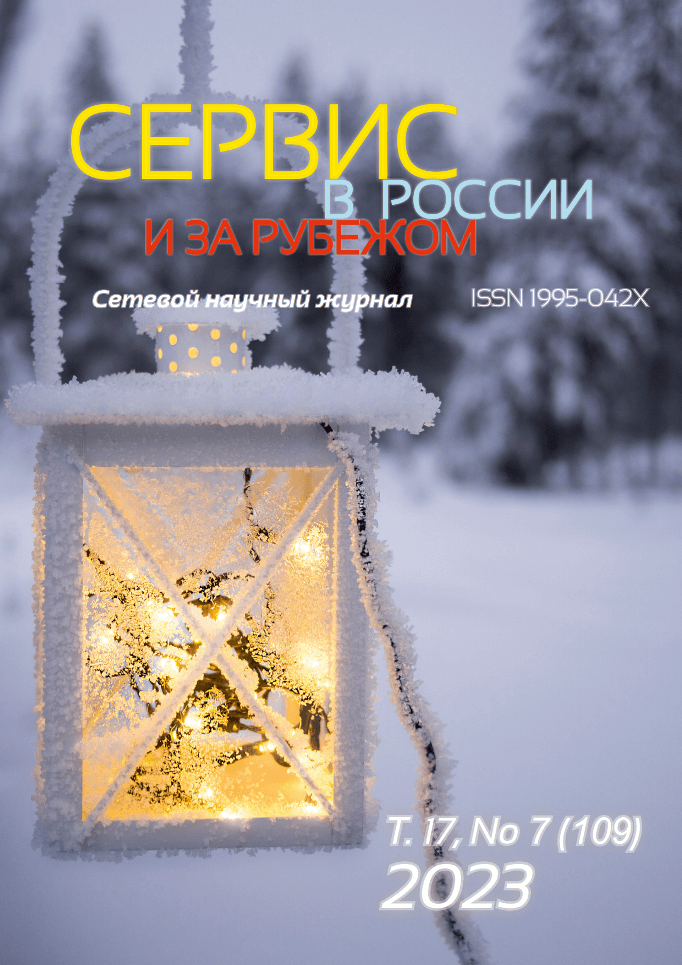The modern business ecosystem model in roadside infrastructure of the region
DOI:
https://doi.org/10.5281/zenodo.10562830Keywords:
roadside service, business model, healthy food format, pilot project, ecosystemAbstract
The development of the business ecosystem in the conditions of roadside service affects the improvement of socio-economic indicators of the tourism industry. The key factors of the roadside business ecosystem development are identified, which are based on human needs in nutrition, accommodation, recreational services, and recreation. No less significant services that have become in demand by amateur tourists in recent years are wellness services, an authentic environment with excursion programs, prayer rooms, contact zoos and modern playgrounds (rooms). Mental - combined nutrition is a trend of the time in combination with a comfortable environment in accordance with modern tourist standards in the segment of roadside service is one of the important conditions determining the quality of economic and trade relations between regions, contributing to an increase in the level of organization of domestic tourism. Bashkortostan ranks second in the Russian Federation in terms of the length of public roads. According to official statistics, the length of public roads in the republic is 48607.3 km, including 795 km of federal roads, and new sections of federal highways are planned to be commissioned by 2024. An actual factor in the ecosystem of business processes, from the consumer's point of view, is the demand for a new format of nutrition in the roadside service system of the "foodauto" type with elements of combined and healthy nutrition. To implement the idea in the "foodauto" format, a pilot site is selected on the territory of a roadside complex, where the traffic flow should be at least 3 thousand cars per day. Organizational and technological processes of approbation and introduction of a new format of food determine the key requirements in connection with the annual increase in tourist flows and increased demand for mental cuisine, authentic environment, which encourages the search for new formats of food and quality of service, innovative approaches to improving the quality of tourist service.
Downloads
References
Амосова Д.В., Шаров М.И. Придорожный сервис России и мировой опыт // Современные технологии и научно-технический процесс. 2014. Т.1. С. 38-46.
Валиев В.Х., Блаженкова Н.М. Стратегический взгляд по развитию придорожного сервиса в регионах России // Современные проблемы науки и образования. 2015. №1 (Ч.1). URL: https://science-education.ru/ru/article/view?id=19684 (Дата обращения: 10.10.2023).
Евсеева А.А., Бунтина Д.К. Стратегический аспект развития придорожного сервиса в России // Научно-методический электронный журнал «Концепт». 2013. Т.3. С. 2816-2820.
Камалов И.Э., Лесников А.И. Формирование муниципального бренда как фактора туристской привлекательности территории // Наука сегодня: теория и практика: Сб. науч. ст. VIII Междунар. науч.-практич. конф. Уфа, 2020. С. 76-80.
Лазарев Ю.Г., Зянкина К.Э. Анализ международного опыта развития придорожного сервиса на сети федеральных автомобильных дорог // Технико-технологические проблемы сервиса. 2017. №2(40). C. 77-81.
Леонтьева Л.С. Лесников А.И. Сервисные ресурсы муниципальной экономики. Ярославль: Фонд поддержки муниципальных реформ, 2007.
Лесников А.И., Хисматуллина Ю.М. Формирование брендового туристического продукта на основе фольклорно-этнографических исследований региона // Вестник Московского ун-та. Сер. 21: Управление (государство и общество). 2022. №4. С. 47-60.
Лесников А.И., Бикбулатова А.И. Построение организационно-сервисных процессов на основе положительных ценностных ориентиров (добрых традиций) как элементов корпоративной культуры туристского комплекса // Наука сегодня: теория и практика: Сб. науч. ст. VIII Междунар. науч.-практич. конф. Уфа, 2020. С. 101-105.
Лесников А.И., Котова Т.П. Тренды инновационной сервисной системы предприятий индустрии гостеприимства в контексте дивергентного сервиса // Вестник УГНТУ. Наука, образование, экономика. Сер.: Экономика. 2023. №2(44). С. 46-56.
Мамаева Д.В., Лесников А.И. Тенденции современной эстетической культуры в ресторанном сервисе // Наука сегодня: теория и практика. Сб. науч. ст. VIII Междунар. науч.-практ. конф. Уфа, 2020. С. 114.
Морозов А.Г., Лазарев Ю.Г. Логистика придорожного сервиса // Технико-технологические проблемы сервиса. 2015. №4(34). C. 77-82.
Никулина Ю.Н. Современные технологии обеспечения и оценки качества услуг в туризме // Экономика, предпринимательство и право. 2022. Т.12. №7. С. 1901-1918. DOI: 10.18334/epp.12.7.114892.
Сафиуллин М.Р. Придорожный сервис региона как условие развития внутреннего туризма (на примере Республики Башкортостан) // Геополитика и геодинамика регионов. 2021. Т.7(17). Вып.1. С. 170-174.
Филонова Ю.С., Трофименко Ю.В. Многофункциональные зоны придорожного сервиса // Научное обозрение. Педагогические науки. 2019. №2-3. С. 101-103.
Хохлова В.В., Бобышев Е.В. Отечественный и зарубежный опыт развития сферы услуг на объектах дорожной инфраструктуры // Теория и практика общественного развития. 2012. №7. С. 224-227.
Berry L., Zeithaml V., Parasuraman A. Quality Counts in Services // Business Horizons. 1985. Pp. 44-52.
Berry L., Zeithaml V., Parasuraman A. Five Imperatives for Improving Service Quality // Sloan Management Review. 1990. Pp. 29-38.
Parasuraman A., Berry L., Zeithaml V. Alternative scales for measuring Service Quality; A comprehensive assessment based on psychometric and diagnostic criteria // Journal of Retailing. 1994. Vol.70. No.3. Pp. 201-230.
Downloads
Published
How to Cite
Issue
Section
License
Copyright (c) 2023 Lesnikov, A. I., & Kotova, T. P.

This work is licensed under a Creative Commons Attribution-NonCommercial-ShareAlike 4.0 International License.












